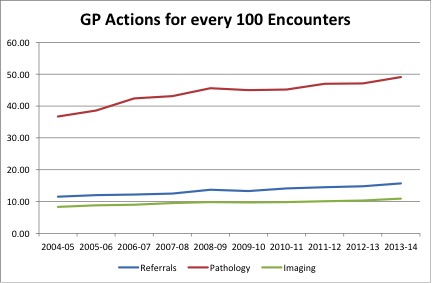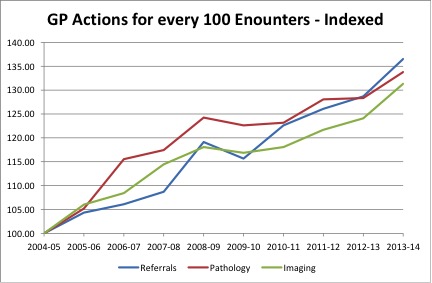
Who holds the keys to health?
Having recently returned from a comprehensive tour of healthcare companies with our friends at UBS, we gleaned a highly important understanding of where the bargaining power lies in the industry. From this tour, it was abundantly clear whose interests matter most.
In essence, every element of the health care sector is dependent upon the doctors – this is across hospitals, health funds, pathology, service providers and medical device distributors.
While doctors are driven by a commitment to care for their patients, their reimbursement is dependent upon the volume of consultations or operations that are performed.
To generate meaningful changes to earnings (through lower costs or higher revenues), health care companies must influence doctor behaviour, rather than patient behaviour.
The challenge though for management is to maintain patient welfare, avoid ethical or moral compromises and modify doctor behaviour without financial incentives.
To illustrate the influence of doctors in the system, we point to a recently published report by The University of Sydney entitled “A decade of Australian general practice activity: 2004-05 to 2013-14”.
The following charts display the actions of General Practitioners for every 100 encounters. Over the past decade there has been a material increase in the proportion of referrals and tests that doctors are ordering.
Health care providers that generate revenues from referrals and operations would find these figures quite appealing. Yet the health funds, who are obligated to write cheques for these services, are acutely aware of this dynamic and understand the challenge of shifting this power towards their favour.
Ben MacNevin is an Analyst with Montgomery Investment Management. To invest with Montgomery, found out more.
This post was contributed by a representative of Montgomery Investment Management Pty Limited (AFSL No. 354564). The principal purpose of this post is to provide factual information and not provide financial product advice. Additionally, the information provided is not intended to provide any recommendation or opinion about any financial product. Any commentary and statements of opinion however may contain general advice only that is prepared without taking into account your personal objectives, financial circumstances or needs. Because of this, before acting on any of the information provided, you should always consider its appropriateness in light of your personal objectives, financial circumstances and needs and should consider seeking independent advice from a financial advisor if necessary before making any decisions. This post specifically excludes personal advice.
INVEST WITH MONTGOMERY

Medicare has long been minimising payments. This has helped health funds keep premiums down.
See this poster from the AMA: https://ama.com.au/system/files/2012_ama_gaps_poster_-_a4_colour.pdf
From this page: https://ama.com.au/feeslist
With payments down 50% compared to the average persons earnings/CPI over 20yrs you can understand why doctors might be keen to shorten consultation times
GPs are the hardest hit in this
Has anybody looked at the number of referrals especially for Pathology and the amount of time per consultation per visit. It is easier for a person to write for a path test and then check the result later if there is a shortage of time. Consul attains get shorter and shorter to keep the volume and revenues up.
A further observation I would make is that the general increase in investigations ordered by doctors is in part due to the desire to avoid being sued in the event of an adverse outcome. I was talking to one of our local GPs about this just the other week. Litigation is not such a common thing in Australia but it is a massive issue in the US…..and it is probably the way we will be heading as well.
Companies that provide these radiological and pathology tests will obviously benefit from this trend as a rule. It might be difficult to have a meaningful competitive advantage if your MSCT scanner is the same as the next blokes, mind you.